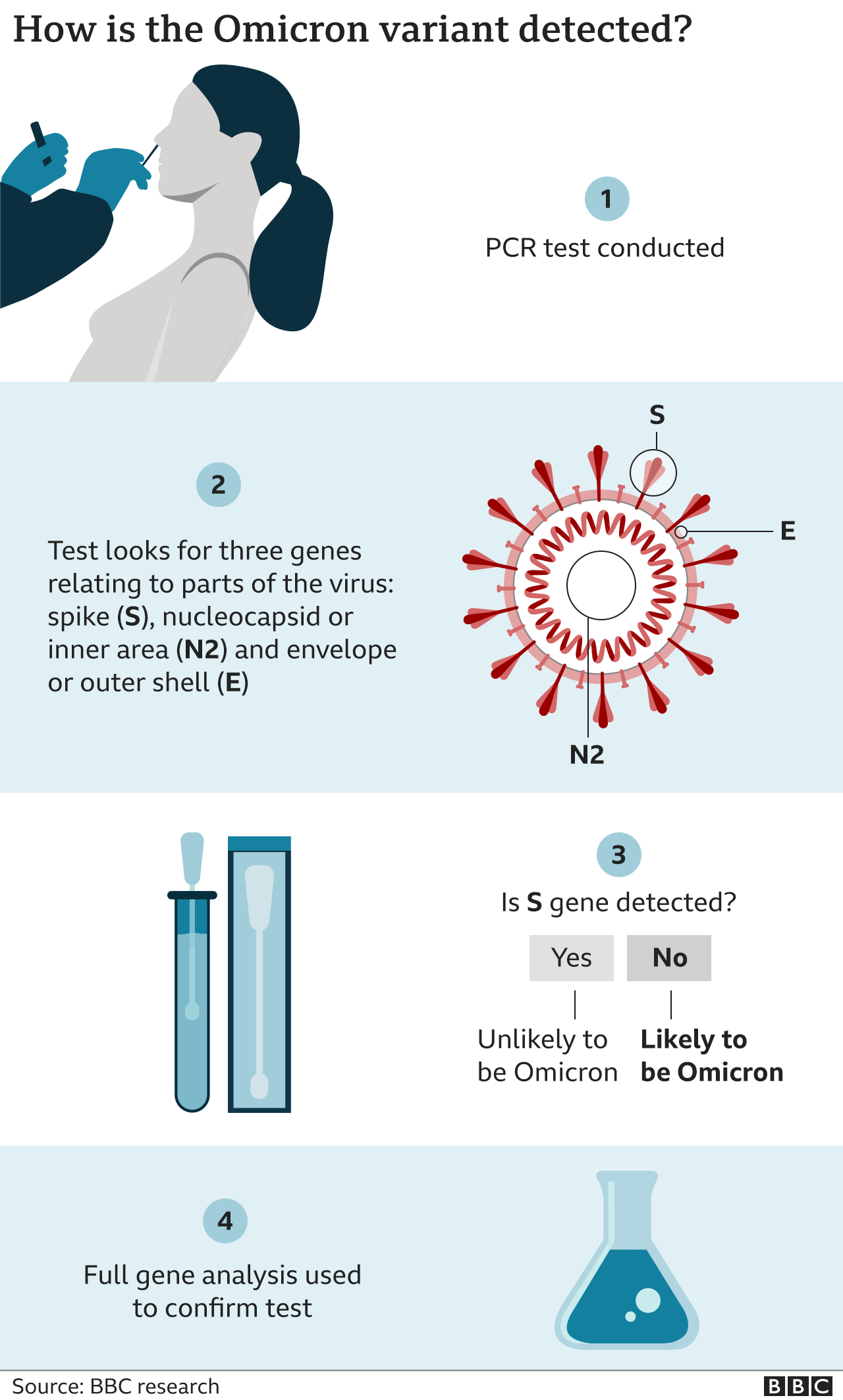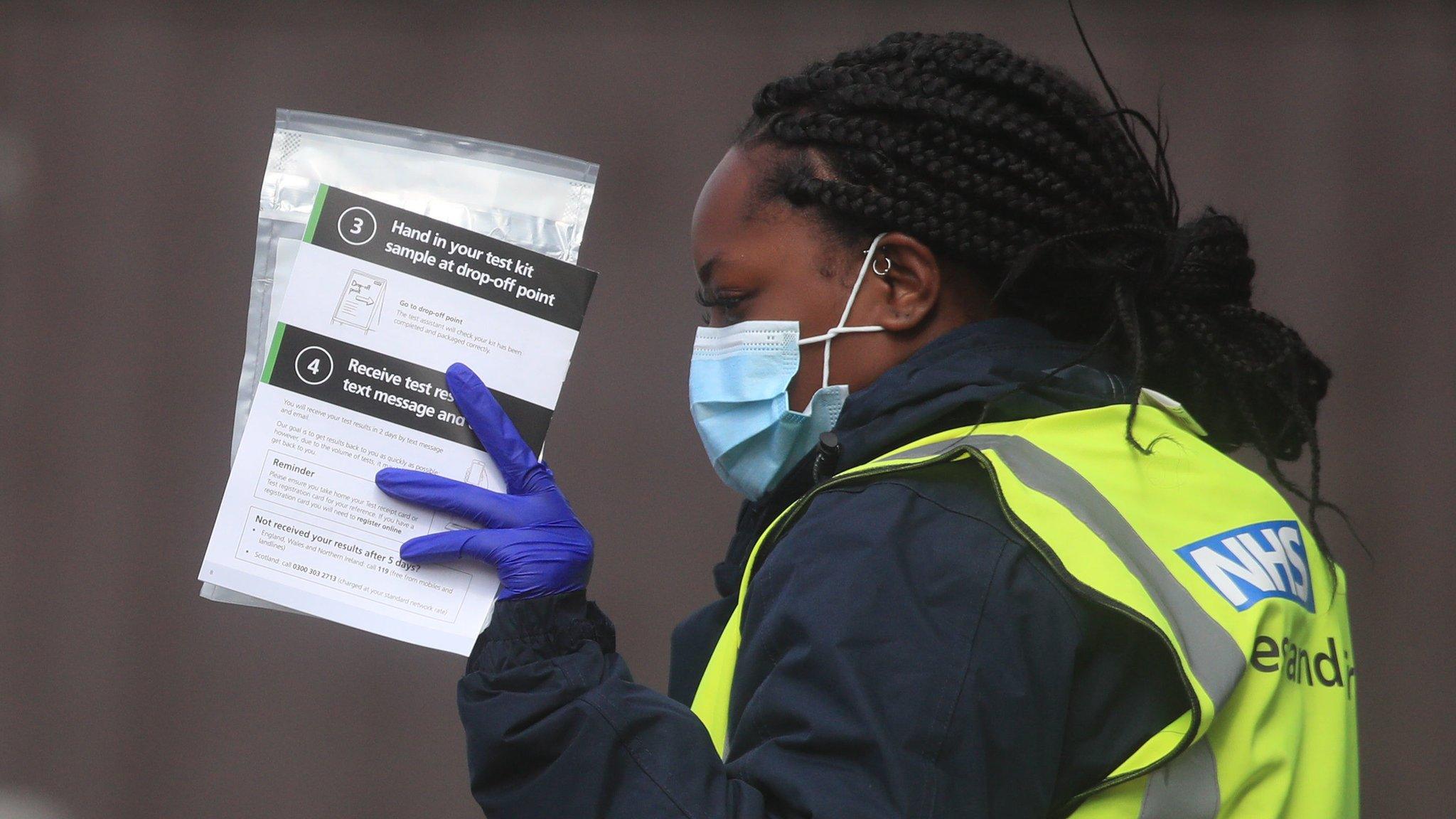Covid: First Omicron variant case confirmed in Wales
- Published
Wales' first Omicron variant case "no surprise"
The first case of the Omicron coronavirus variant has been confirmed in Wales.
It has been located in the Cardiff and Vale University Health Board area, and is linked to international travel.
The Welsh government said it was prepared to "respond rapidly" to the emerging variant, and actions are being taken to slow the spread.
The government added there was no substantial evidence the variant would lead to a more severe illness.
"We're likely to see more cases [of Omicron]," said Dr Eleri Davies, deputy medical director of Public Health Wales (PHW).
"There's no evidence from this first case of any further spread in the community for example, but it is likely that we will see other introductions of this new variant into Wales."
She added: "We are concerned that this new variant does have a significant number of mutations."
The Omicron variant, which was initially identified in South Africa, was first detected in the UK on 27 November.
Since then, cases of the variant have been confirmed in both England and Scotland, and now Wales.
Speaking to BBC Radio 4, Mark Drakeford said the case had been "identified through our sequencing service and public health officials have now been able to contact them".
"We are confident that the people who need to be in isolation are now doing that," he added.
Asked about the health of the affected individual, Mr Drakeford said: "I am told that they are reasonably well and not themselves badly affected by the illness."

Early data from South Africa has shown the variant may evade some immunity built up by previous infection, however data is not available on the effectiveness of vaccine-derived immunity.
Stricter measures on travel have been implemented across the UK to limit the spread of the new variant.
Everyone entering the country must now take a PCR test, and isolate pending a negative result.
The UK travel red list has also been reinstated, meaning all travellers from listed countries must isolate in a hotel on entry into the UK.
What is the Omicron variant?

The Welsh government followed the UK government in implementing stricter measures for travellers entering the country from abroad
Around the world there are thousands of different variants of Covid circulating, as viruses mutate constantly, however only a few are considered variants of concern.
Mutations to the virus can make the virus more or less infectious, impact the effectiveness of vaccines, and potentially cause more severe illness.
It is too soon to know what the impact of the mutations of the Omicron variant are, but it is has "a large number of mutations, some of which are concerning," according to the World Health Organization.
Omicron, or variant B.1.1.529, has 50 mutations in total, 32 of which are in the spike protein, the part of the virus the vaccines target.
Data from South Africa has shown a surge of infections following the emergence of Omicron, however it is not yet known if the variant can cause more severe illness.
- Published4 January 2022

- Published28 November 2021

- Published22 February 2022

- Published3 December 2021

- Published2 December 2021

- Published2 December 2021
